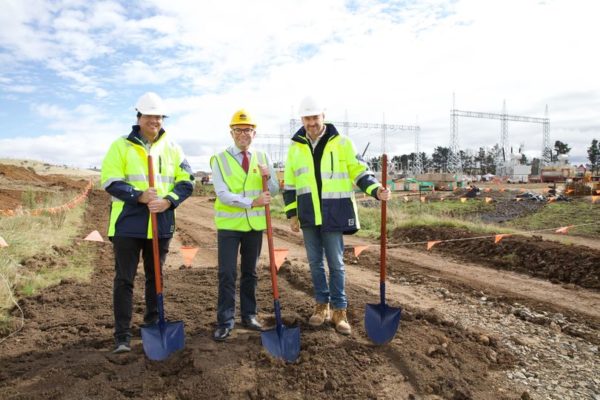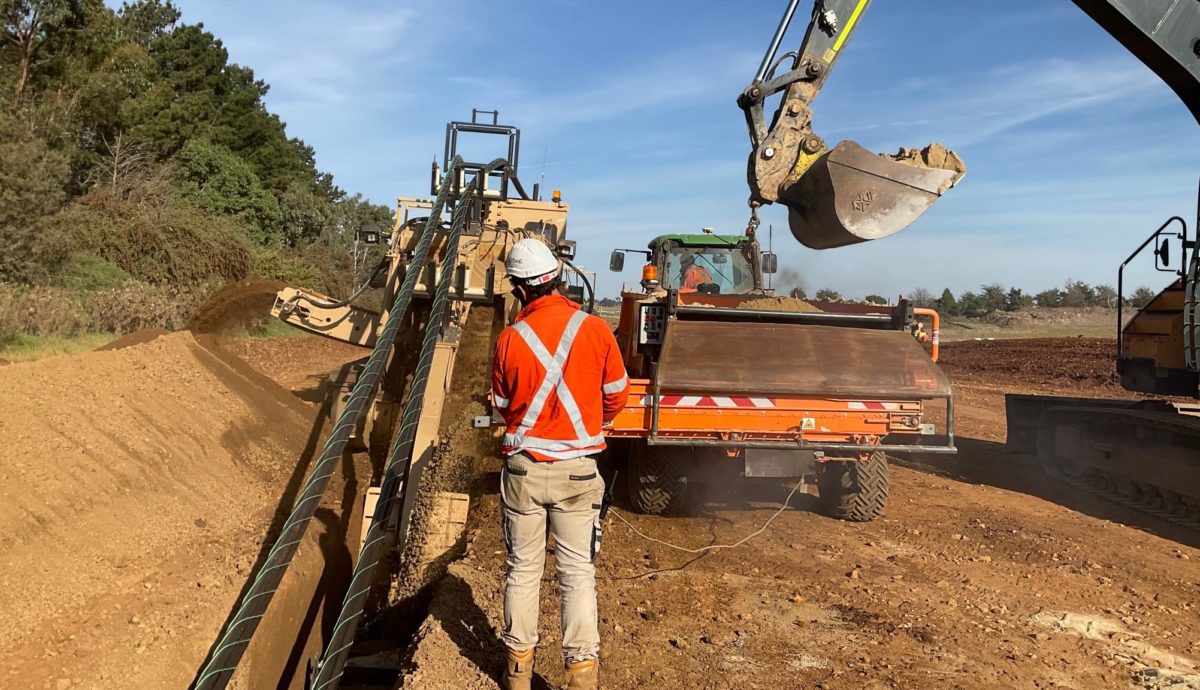AC Energy Corporation (ACEN) Australia, a subsidiary of Philippines-based conglomerate Ayala Corporation, announced this week it had broken ground on the 50MW, one-hour battery energy storage system that the developer expects will play a critical role in addressing the intermittency of renewable energy as Australia transitions to a renewables-dominated grid.
The lithium-ion battery energy storage system (BESS) will be built alongside the 400MW first stage of the New England Solar Farm being constructed about six kilometres east of Uralla. The $768 million project is being developed within the proposed New England Renewable Energy Zone (REZ), which has been identified by the state government to host the development of up to 8GW of renewable generation capacity.
Combined with the solar farm, the battery storage system, which has scope to be scaled up to 200MW/400MWh in the future, will be one of Australia’s largest co-located solar and battery energy storage facilities.
ACEN Australia chief executive officer Anton Rohner said the BESS will improve system strength and grid reliability in the National Electricity Market, allowing more low-cost renewable energy to connect to the grid.
“Aside from supporting grid reliability, the battery will also allow for generation shifting, so that energy can be stored and then discharged into the grid when it is most needed,” he said.
“The New England battery can also be scaled up to 200MW with two hours of storage capacity in response to the needs of consumers and the grid.”
The New England solar project is being built in two stages, with Green Light Contractors (GLC), the Australian EPC arm of Spain-based company Elecnor, confirming work is well under way on the 400MW first stage and the 33/330 kilovolt (kV) substation being installed across the northern section of the site.
Construction of the first stage of the solar and storage project is expected to be completed in 2023. Once the entire 720MW project is complete, it is anticipated it will produce 1,800GWh of renewable electricity each year, enough to power more than 250,000 typical NSW homes.

Image: Simon Scott
The project was originally developed by UPC\AC Australia, a 50:50 joint venture (JV) between ACEN and Hong Kong-headquartered clean energy group UPC Renewables. It is now being driven by ACEN Australia after ACEN earlier this year increased its ownership in the JV to 80%, with the intent to be at 100% ownership by early 2023.
The acquisition triggered a rebranding of UPC\AC Renewables but ACEN president and chief executive officer Eric Francia said the approach would remain unchanged.
“While the UPC\AC Renewables name and brand is changing to ACEN Australia, our highly capable Australian team will remain in place, and our approach to building long-term relationships built on trust with our host communities, and other stakeholders remains the same,” he said.
Francia said the company was excited to be expanding its renewable energy portfolio and “contributing to Australia’s transition to a clean energy future”.
“ACEN has been a partner of UPC Renewables since 2018 and we are immensely proud of the work already achieved on the New England Solar project by the team,” he said.
ACEN Australia’s pipeline of projects includes the 400MW Stubbo Solar Farm and associated 200 MW/200 MWh battery energy storage project; a share in the Rise Renewables 250MW Baroota pumped hydro and 300MW Bridle Track solar projects in South Australia; the proposed 600MW Birriwa solar farm and battery project near Dunedoo in NSW; and the 160MW Axedale Solar Farm in central Victoria, which may also come to include a battery energy storage system.
The New England battery project is underpinned by $12.5 million grant from the state government’s Emerging Energy Program.
This content is protected by copyright and may not be reused. If you want to cooperate with us and would like to reuse some of our content, please contact: editors@pv-magazine.com.









3 comments
By submitting this form you agree to pv magazine using your data for the purposes of publishing your comment.
Your personal data will only be disclosed or otherwise transmitted to third parties for the purposes of spam filtering or if this is necessary for technical maintenance of the website. Any other transfer to third parties will not take place unless this is justified on the basis of applicable data protection regulations or if pv magazine is legally obliged to do so.
You may revoke this consent at any time with effect for the future, in which case your personal data will be deleted immediately. Otherwise, your data will be deleted if pv magazine has processed your request or the purpose of data storage is fulfilled.
Further information on data privacy can be found in our Data Protection Policy.